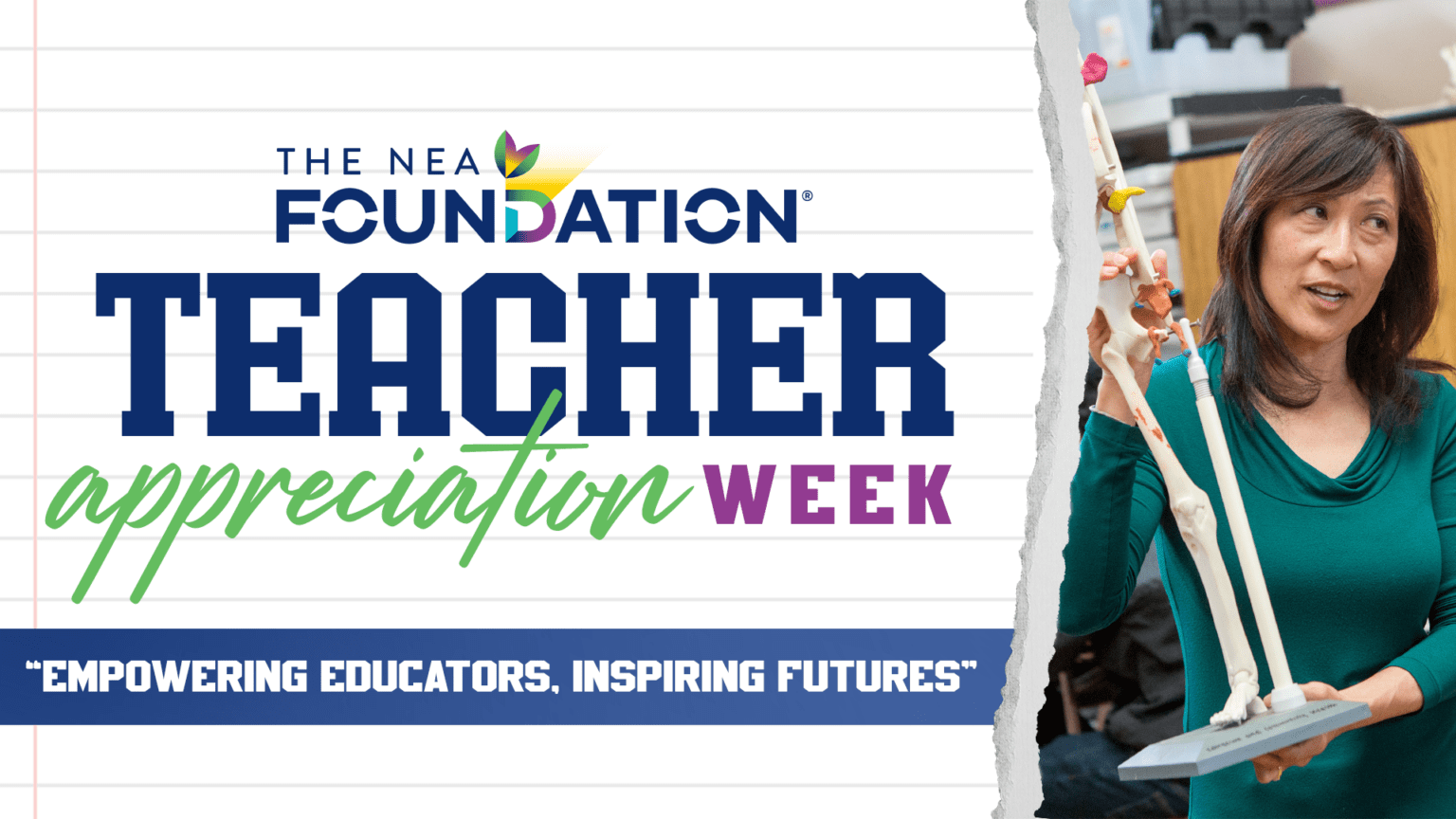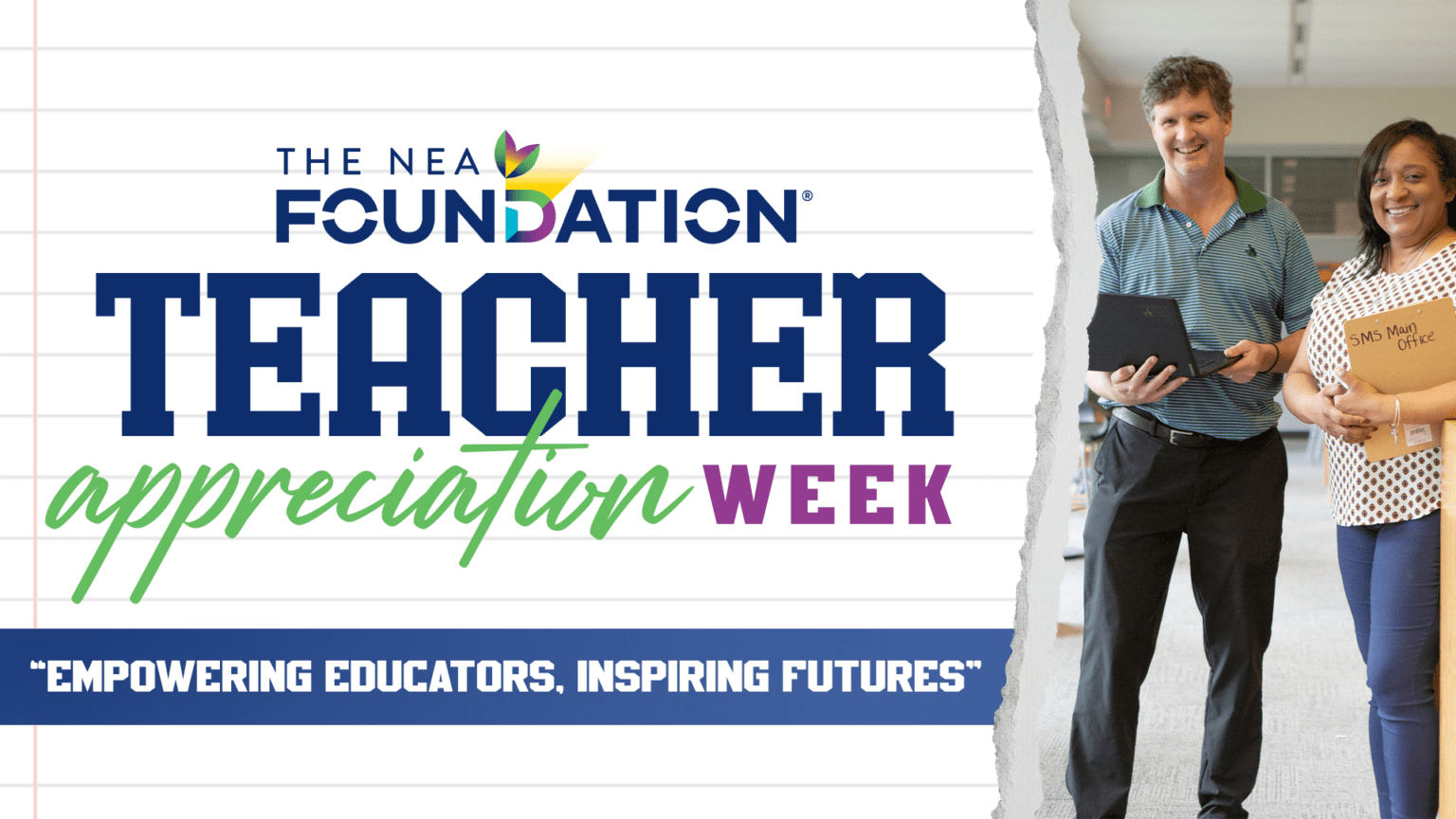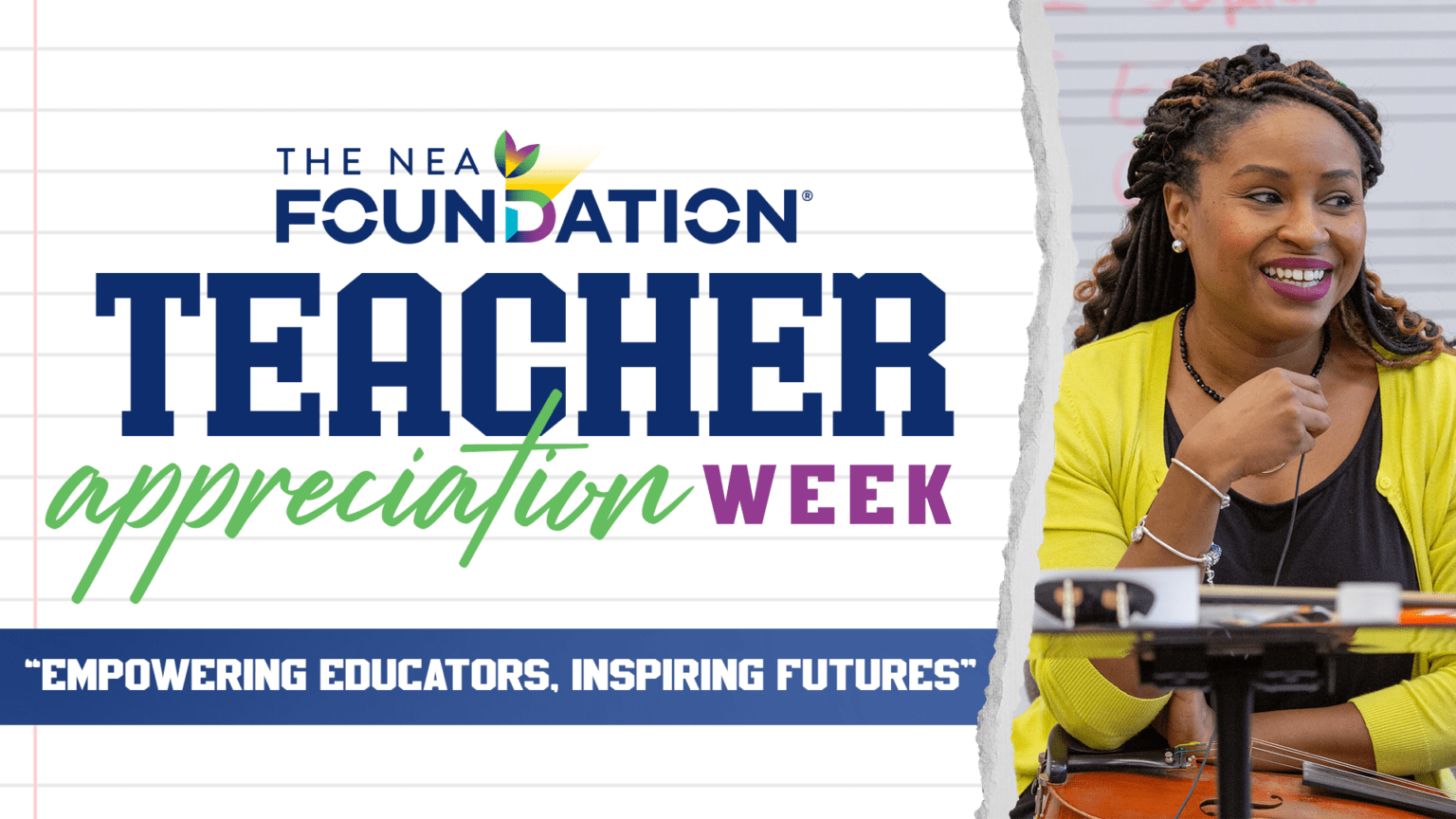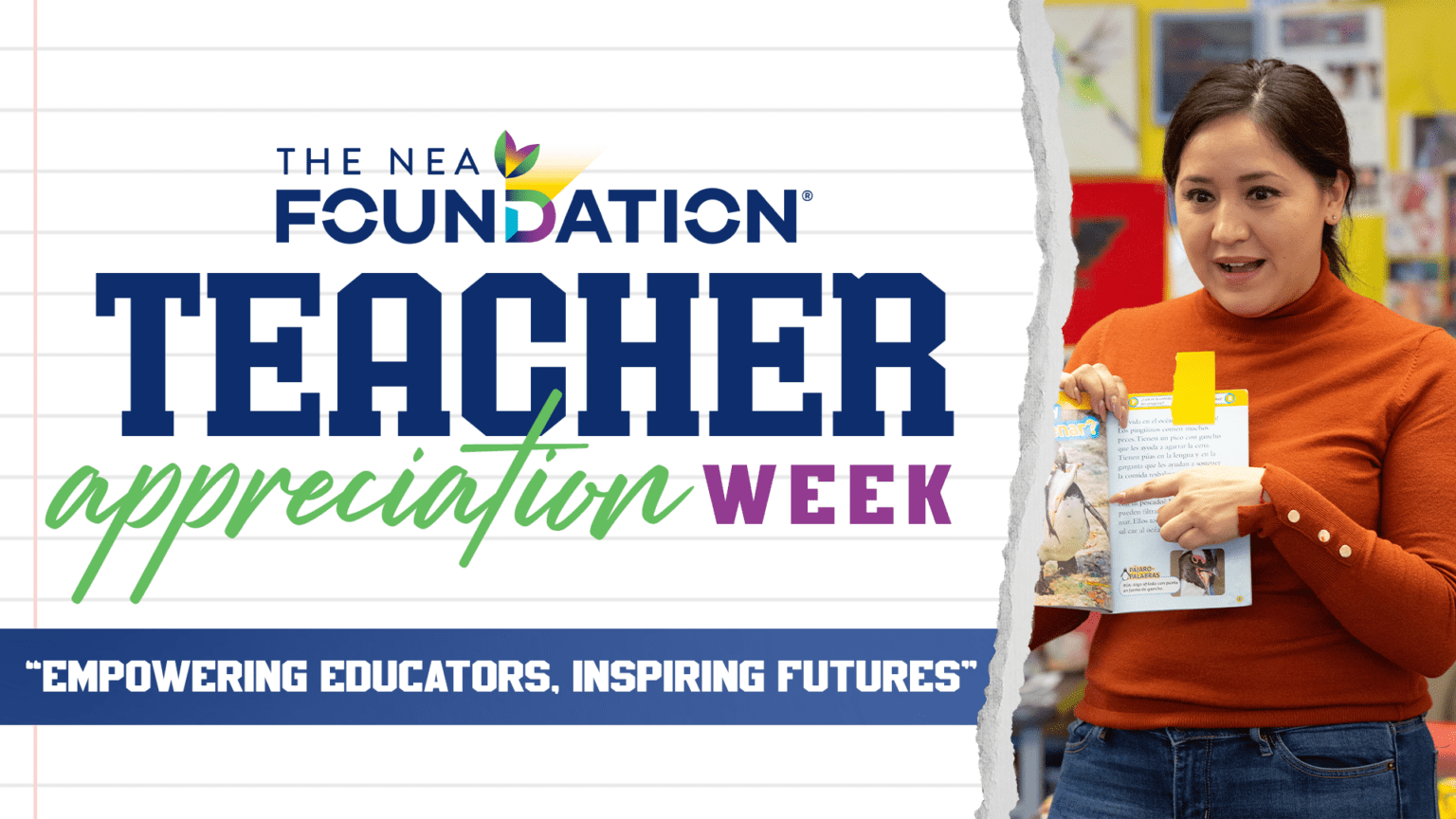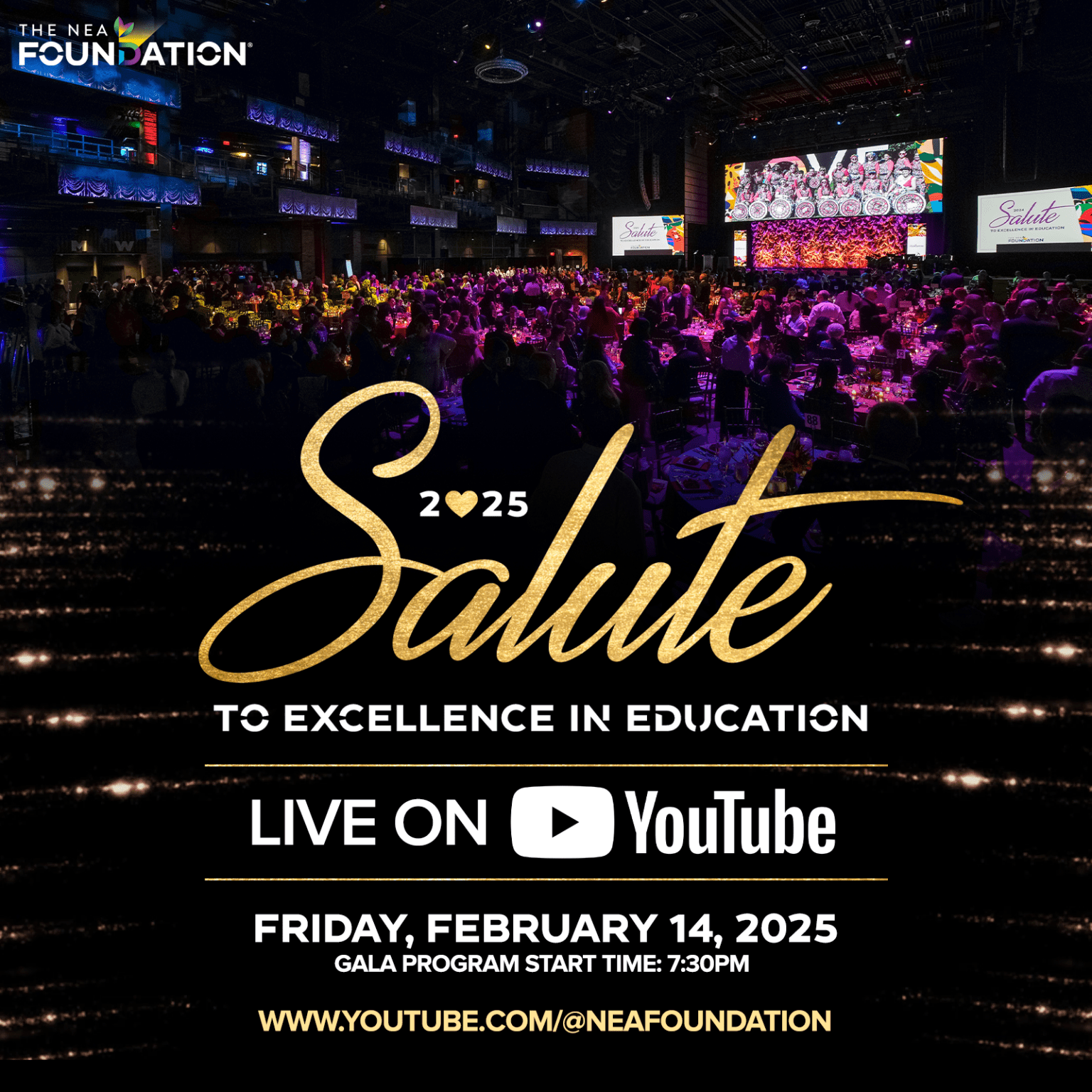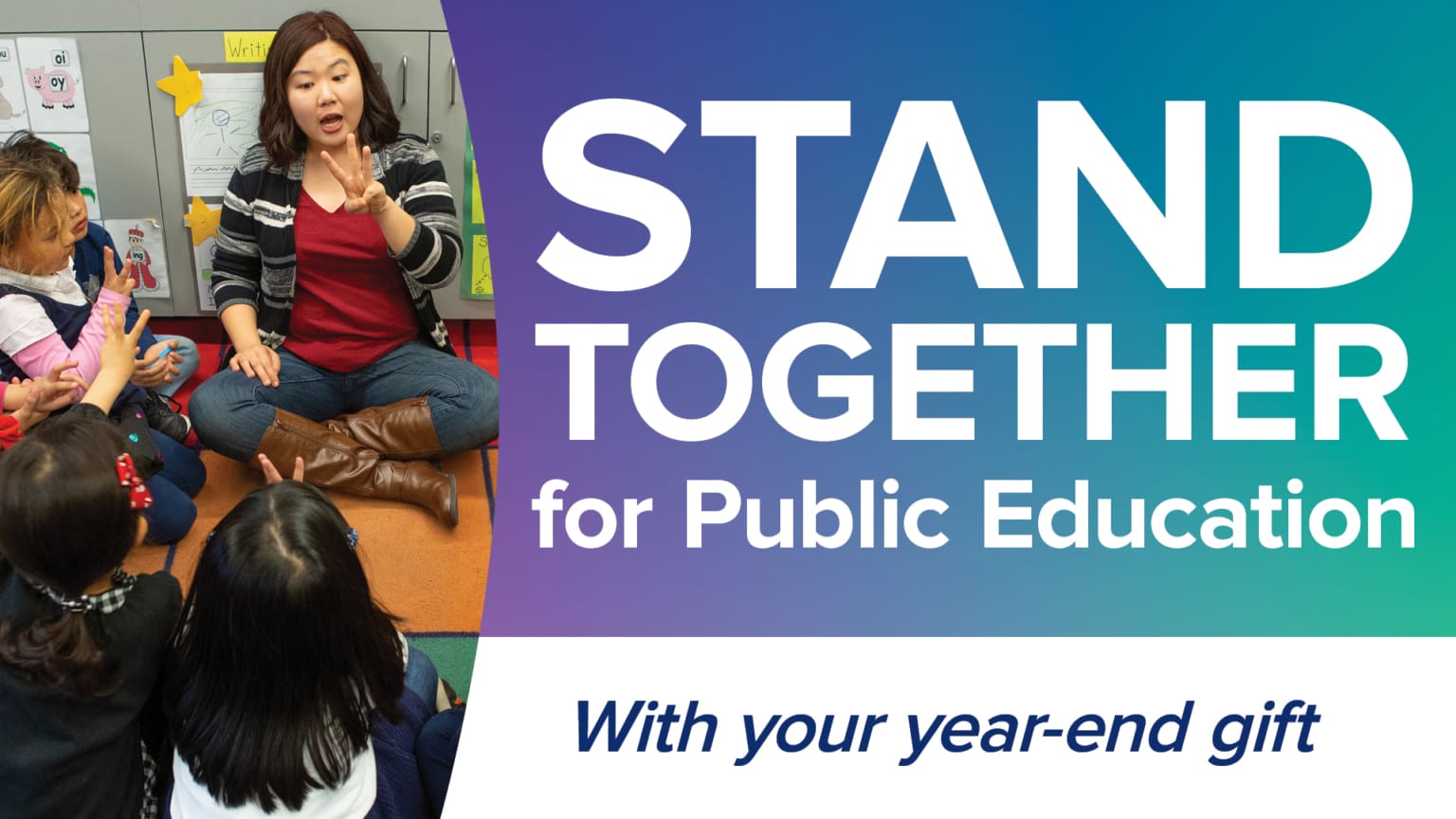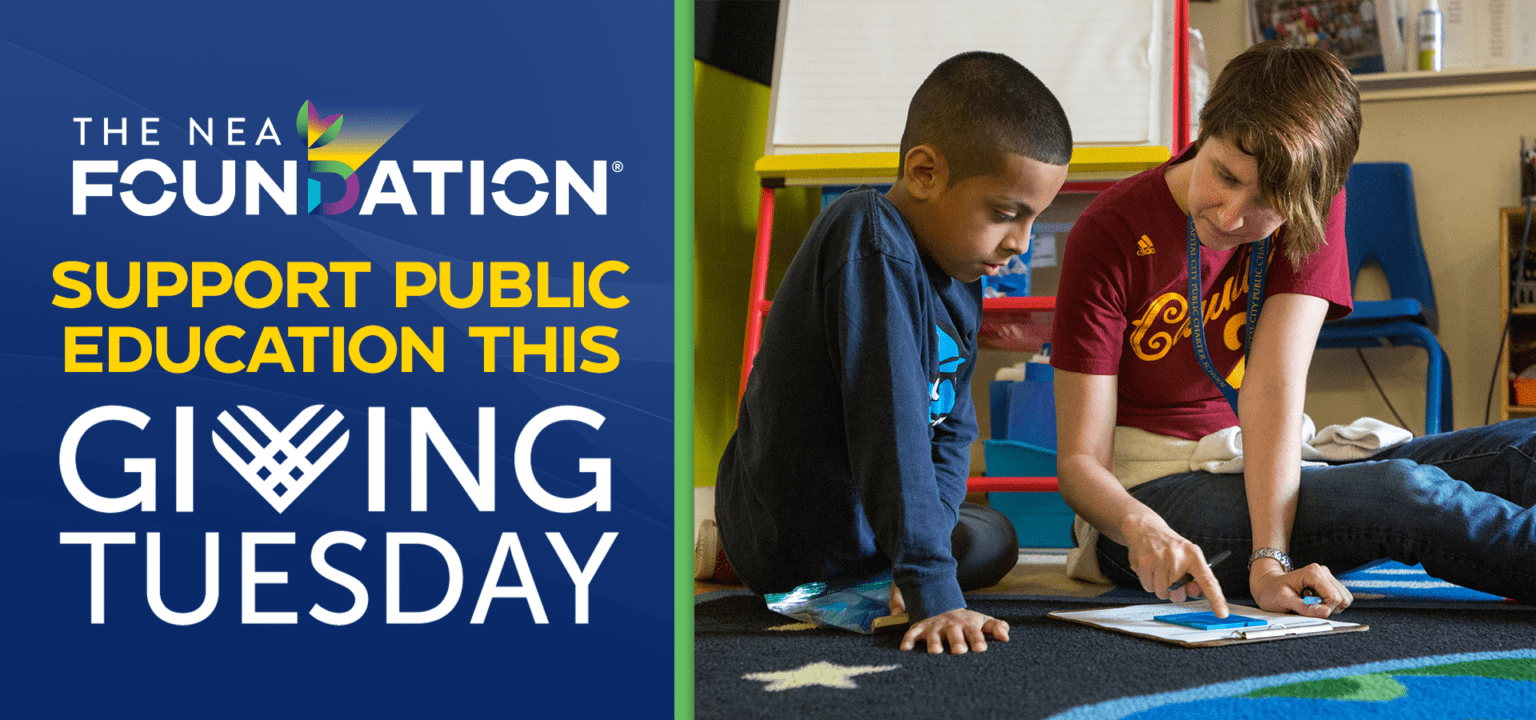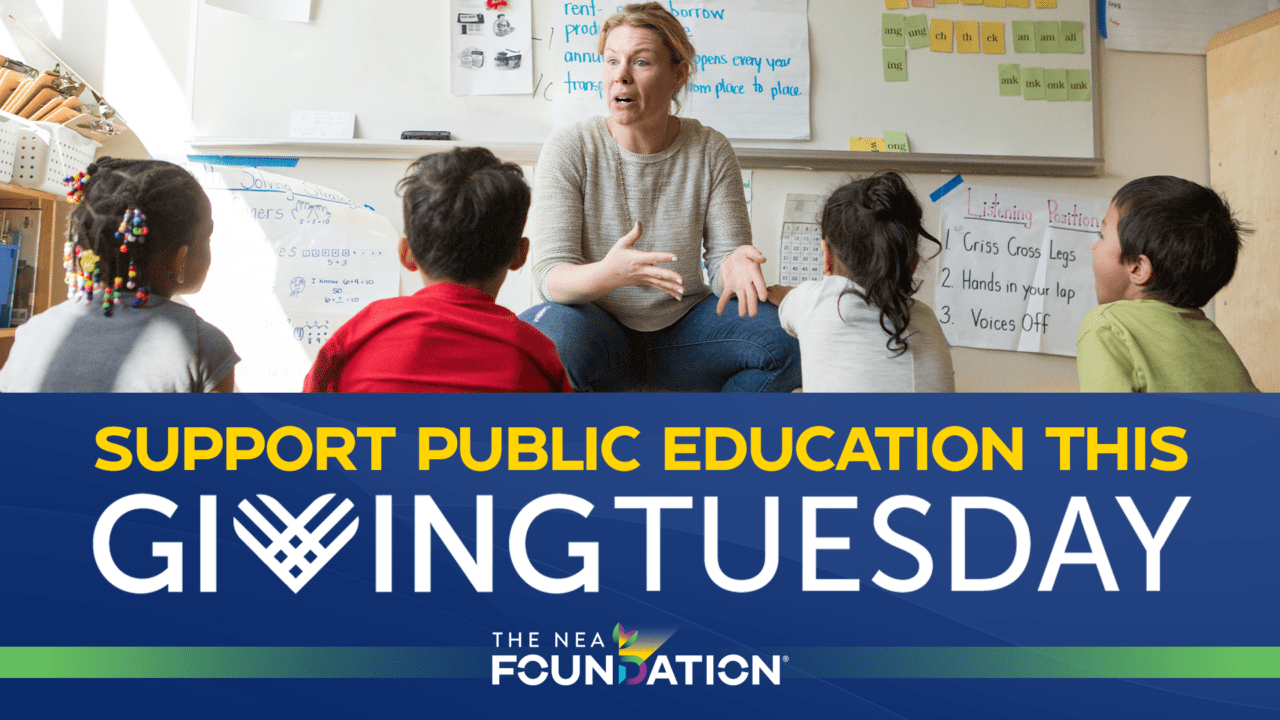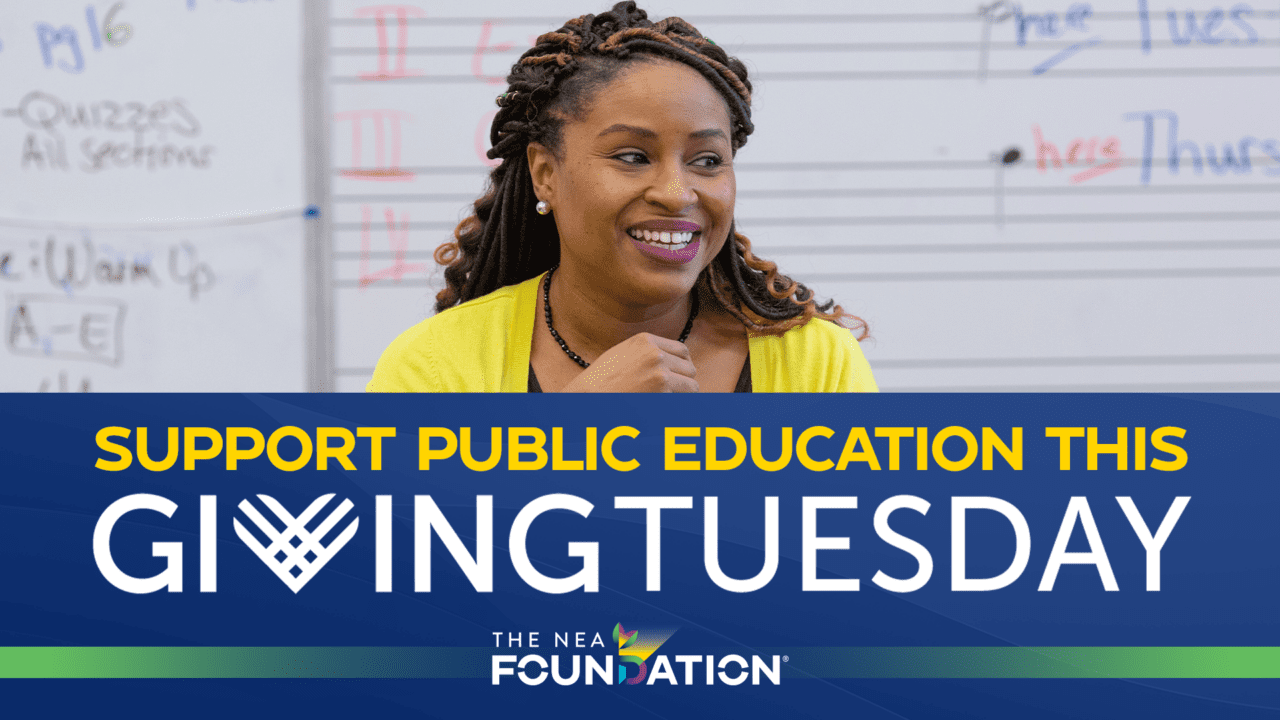Tiffanee Brown is an English language arts consultant teacher in Burlington, Washington. She received an NEA Foundation Learning and Leadership grant to attend the H. Lynn Erickson and Lois A. Lanning Concept-Based Certification Institute to deepen her understanding of Concept-Based instruction and become a certified trainer. Here’s what she had to say about her project and its impact.
Tiffanee Brown is pictured with Dr. H. Lynn Erickson and Dr. Lois A. Lanning while getting her certificate from the training.
Tell us a little about your project.
The NEA Foundation Learning and Leadership grant allowed me to become a certified presenter/trainer of Concept-Based Curriculum and Instruction through the Dr. H. Lynn Erickson and Dr. Lois A. Lanning Certification Institute held in the Netherlands in July of 2017. Concept-Based Curriculum and Instruction systematically increases thinking in our classrooms by explicitly structuring learning experiences to help students reach important transferable understanding. This learning design model frames the factual and skill content of subject areas with disciplinary concepts and generalizations. Concepts and generalizations transfer through time, across cultures, and across situations. Addressing both the factual/skill and conceptual levels allows students to think at higher levels, achieve deeper understanding, and gain the ability to transfer knowledge (Erickson and Lanning, 2013). Since attending the Institute, I have trained over 200 teachers from my district and about 10 districts around me in Concept-Based Curriculum and Instruction.
How does this project help your students?
We are trying to cultivate thinking classrooms with Concept-Based Curriculum and Instruction. We want to move beyond facts and skills to allow students to engage in relevant and personally meaningful units of study. This style of learning has a low threshold and high ceiling, allowing many points of access for learners. Through Concept-Based Curriculum Units, all students – including special education, gifted, language learners, students of trauma – develop and apply knowledge and skills as they explore a range of real-life dilemmas, and thought-provoking ideas that capture kids’ attention and curiosities. When struggling students access a quality core curriculum that is worthy of their time and attention, they become empowered to express their own ideas, pursue dreams, and take on the complex task of interacting in our global society.
What is the biggest training challenge you are currently facing?
The primary challenge I have is building my capacity to support adult learners. I am addressing this challenge by learning from teachers and administrators that are more experienced in facilitating professional learning. I am also accessing other professional resources that push me to continue to grow in this area.
What was your greatest accomplishment?
My greatest accomplishment is the connection I made with a global network of teachers. It is amazing to be part of a global movement to transform classrooms. I also have been invited back to the Concept-Based Certification Institute in the Netherlands in July 2018 to serve as the English language arts specialist. This will allow me to support teachers and administrators as they become certified trainers. I am very excited to be given this opportunity!
What exciting projects are you working on right now?
I am in the process of co-authoring a Concept-Based literacy book with Dr. Lois Lanning for Corwin Press. It is titled “Moving Literacy Beyond Skills to Understanding and Transfer: Designing Concept-Based ELA Lessons.” I will also be joining Dr. Lanning to facilitate a Concept-Based training in Zurich Germany next February!
Have an idea to improve student learning? Apply for an NEA Foundation grant of your very own! The application deadlines for Student Achievement and Learning & Leadership grants are February 1, June 1, and October 15. For help developing your proposal, be sure to check out our grant writing tutorial.

